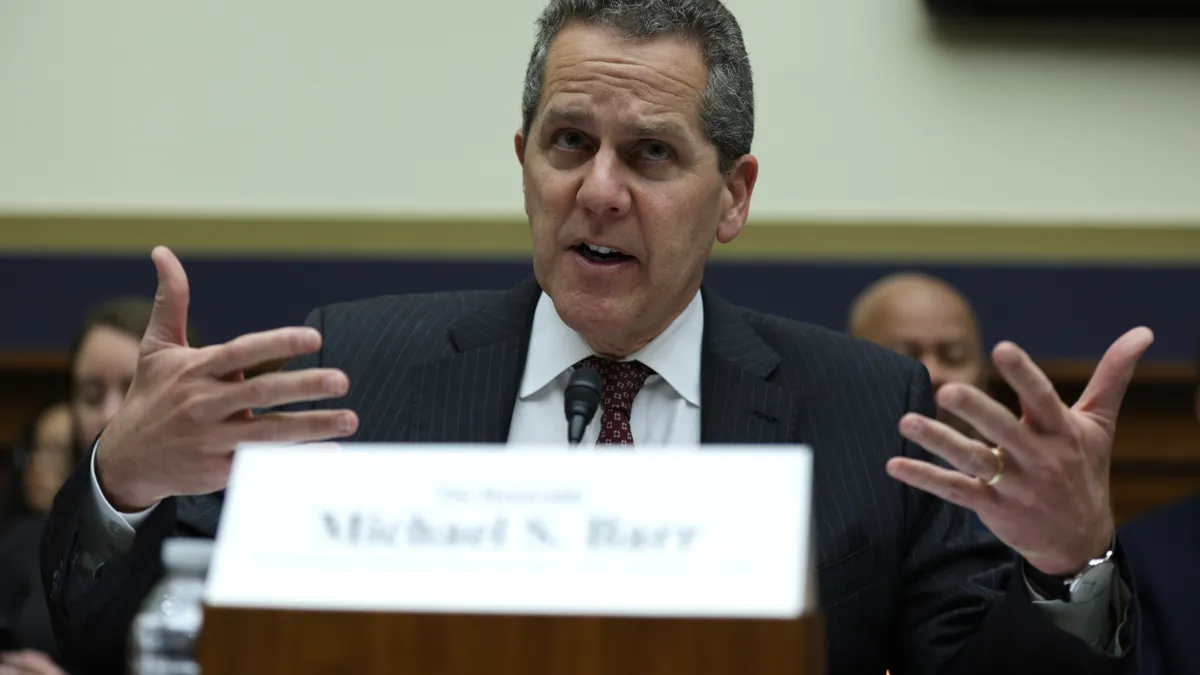Count fintech Yotta among those impacted by the implosion of middleware provider Synapse.
Around 85,000 customers of the fintech startup with a total of $112 million in savings have been locked out of their accounts for three weeks, CEO and co-founder Adam Moelis told CNBC last week.
The source of the crisis is the ongoing clash between fintech middleware service provider Synapse and Tennessee-based Evolve Bank & Trust — a dispute that has sparked debate on banking-as-a-service and impacted more than a dozen startups recently.
Customers of Yotta, a savings app that counts Synapse and Evolve as two of its banking partners, have been forced to borrow money for food and postpone upcoming events like surgeries and weddings, Moelis noted.
“The stories are heartbreaking,” the CEO told CNBC. “We never imagined something like this could happen. We worked with banks that are members of the FDIC. We never imagined a scenario like this could play out and that no regulator would step in and help.”
Synapse-Evolve fallout
Synapse, an embedded financial platform, faced financial constraints when neobanks Mercury and Dave left its platform last year. Mercury offloaded Synapse to work directly with Evolve and later sued the fintech for $30 million in an arbitration case.
Synapse filed for Chapter 11 bankruptcy in April, listing around 50-99 creditors, including Amazon Web Services, Evolve Bank & Trust, the Financial Technology Association, First Horizon Bank, Fiserv, Lineage Bank, Mastercard, Mercury, Trulioo, Yotta and TabaPay.
TabaPay, a money movement platform, agreed to acquire Synapse’s assets for $9.7 million, but the deal fell through because of “failure to meet the purchase agreement closing conditions,” a TabaPay spokesperson told Banking Dive earlier last month.
During Synapse's wind-down, Evolve had a shortfall of roughly $42 million on its side, but none of the fintech's other partner banks faced any such issue, Synapse’s CEO Sankaet Pathak said in a LinkedIn message with Banking Dive on Tuesday.
Evolve was aware of the deficit and received a full accounting of the discrepancy multiple times, according to Pathak. Synapse was under the impression that Evolve was working toward addressing the discrepancies, but the night before the TabaPay sale hearing, Synapse learned that the issues had yet to be fixed.
However, a spokesperson for Evolve told Banking Dive via email that the lender disagrees with Pathak’s claims “regarding a shortfall at Evolve and has identified material irregularities in ledgers provided by Synapse,” adding that the bank is collaborating with the court-appointed U.S. Trustee to decide how to properly distribute funds to Synapse's end-users who had their access to funds cut off.
“Evolve was not party to TabaPay’s agreement with Synapse,” the Evolve spokesperson noted. “It is unfortunate this misinformation continues to be circulated. Evolve Bank & Trust is a well-capitalized member FDIC bank and to suggest otherwise is reckless and defamatory. As initial court filings by the trustee revealed, Synapse was ‘grossly’ mismanaged.”
Since October 2023, Synapse transitioned most of its clients, including Yotta, from Evolve to Synapse, whereby the middleware provider held the sole responsibility for overseeing and managing the infrastructure of the Synapse Brokerage, according to the bank’s spokesperson.
Pathak, on his part, noted that the whole situation related to the foundered deal is centered around Evolve's attempts to evade paying for the deficit its actions caused. Once the issues are rectified, the frozen funds can be released to the customers, he said.
“The resolution of these discrepancies remains crucial for protecting the depositors and making them whole. Evolve’s timely action on these identified issues is necessary to align the [general ledger] balances with the trial balance reports,” Pathak added.
Pathak said he'd previously been hopeful that once the Evolve issue was addressed, TabaPay could proceed with the deal to acquire Synapse’s assets. But now, it seems too late for the TabaPay deal since “all enterprise value has been destroyed” and Synapse has completely wound down, with no employees or customers, he noted.
Amid the Synapse fallout, Yotta abruptly discontinued paying rewards on savings balances, paychecks and card spending last week.
“This was not an easy decision to make. However, our primary vendor, Synapse Brokerage LLC, is no longer paying us the revenues we are owed on our deposits and cards,” Yotta staffer Jeff Johnson wrote in a blog post. “Unfortunately, this means that we have no choice and can no longer offer rewards for these banking-related services.”
The company assured customers the rest of its app, along with the games and prizes, will continue to work as usual.
Yotta partnered with Synapse in 2022 to roll out a banking and savings app that offered higher interest rates and a secure credit card targeted at Gen Z and millennials who struggle to save. The savings account was designed to match each savings deposit with a chance to win weekly games and prizes worth $10 million.
“Synapse has a wide variety of financial services so we could be responsive to our customers, making it really easy to bring new debit and credit products to market quickly,” Moelis said at the time.
Those impacted by the dispute
Yotta is one of a number of fintechs impacted by Synapse’s collapse. Teen-focused fintech Copper was forced to abruptly terminate its bank deposit accounts and debit card services earlier this month. Certain Copper services were offered through Synapse, and Copper-branded debit cards were issued by Evolve, the fintech’s website said.
A bankruptcy judge appointed Jelena McWilliams, a managing partner at law firm Cravath, Swaine & Moore and former chair of the Federal Deposit Insurance Corp., to serve as the Chapter 11 trustee in Synapse’s bankruptcy case. Creditors are also pushing to convert the case to Chapter 7, which would help liquidate the company.
Judge Martin Barash of the U.S. Bankruptcy Court for the Central District of California noted during a hearing related to the appointment that “the trustee can immediately start speaking to parties in interest and developing a plan to fund the continued preservation of Synapse’s systems and data,” and come up with a solution “that allows funds to be returned to end users, to the rightful owners of those funds, as soon as humanly possible.”




















